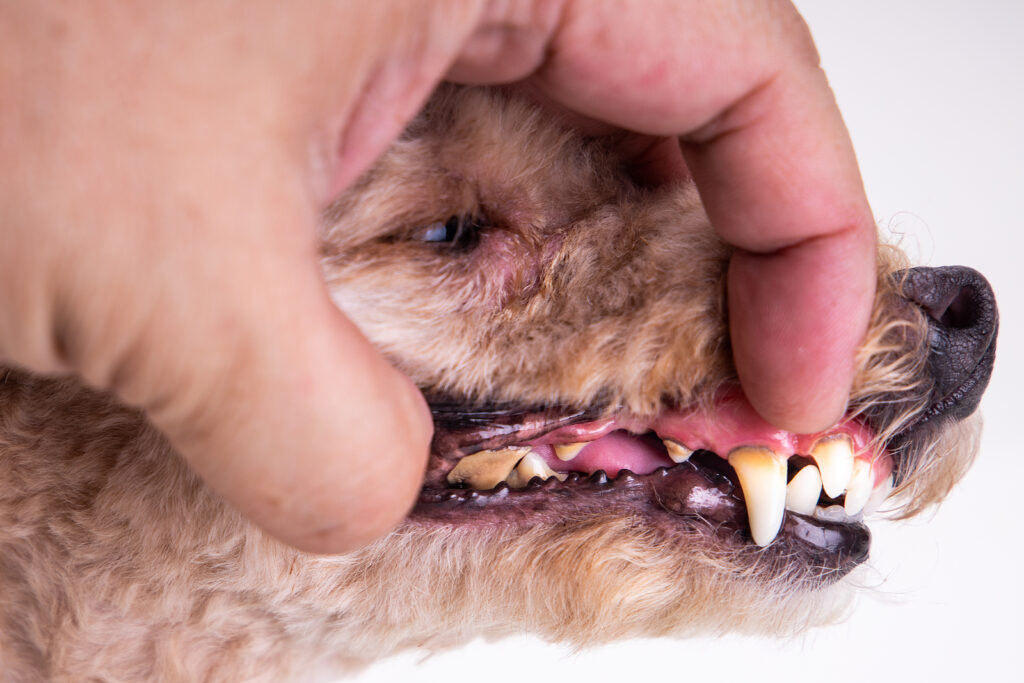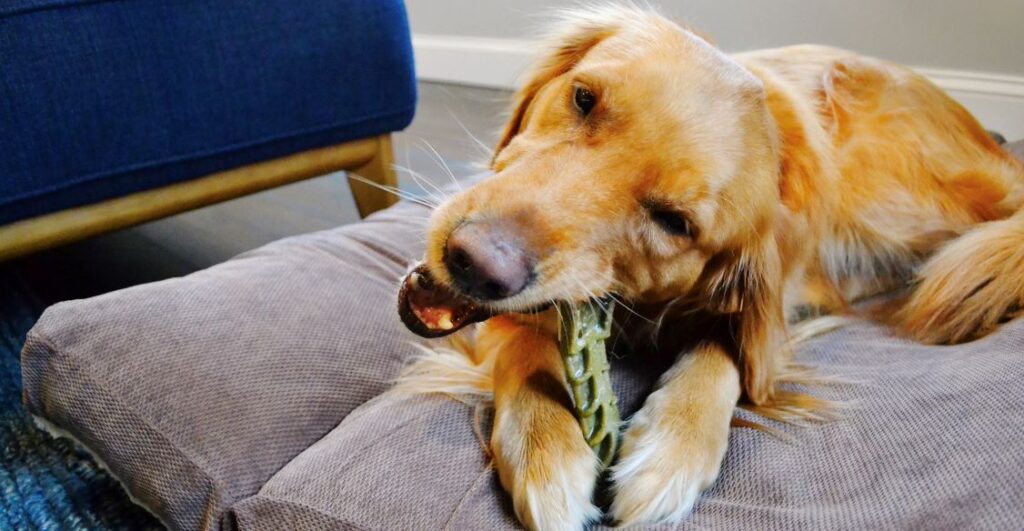Canine dental disease has now become the number one health issue affecting 80% of adult dogs. So what is it, what are the common signs to look for and most importantly how can we help to prevent is and keep our dog’s teeth healthy?
What is Periodontal disease?
Commonly known as dental and gum disease, periodontal disease is an inflammatory condition that affects the soft and hard structures in the mouth that support your dog’s teeth. In the early stages of development, periodontal disease is a buildup of plaque and tartar both on the surface of your dog’s tooth as well as underneath their gums. With the disease you would likely notice your dog’s gums becoming swollen and red. In the more serious and chronic form of periodontal disease, the gums start to pull away from the tooth leading to the tooth loosening or eventually falling out.
What are the signs to look for?
Without knowing what to look for, most pet owners often mistakenly consider common signs of periodontal disease as normal, which results in missing the early indicators of dental problems. When looking at your dog, here are some top signs to consider if determining the health of their dental hygiene:
- Bad breath: Smelly breath is a key indicator that your dog may be suffering some form of periodontal disease. Bad breath, also known clinically as halitosis, is the result of increased bacteria being present in your dog’s mouth due to the buildup or plaque and tartar which in turn causes decay that creates smelly sulphur compounds.
- Visible tartar: Lifting your dog’s lip to look at the colour of their teeth is another great way of determining their dental health. Are they pearly white or is there an appearance of a yellow or brown discoloration and a slightly unusual un-tooth-like shape on their teeth? Most commonly these colour changes will be seen first on their back teeth. This is a telltale sign of your dog having tartar build-up. Over time, increased tartar, especially up and along their gum line, can cause periodontal disease to further develop and intensify.
- Red or bleeding gums: Known as gingivitis, infected gums often have a darker red hue, appear swollen and may even bleed if your dog was chewing a toy or something firm. This inflammation of the gums can cause the loosening of the attachments of the teeth as well as pose risk for the bacteria in their mouth. If untreated, this can result in bacteria entering the blood stream and cause more systemic health issues such as heart, kidney or liver disease.
- Drooling: We all know drooling can be common around treat time, but if your dog is drooling excessively—and at times not associated with food—it may indicate that there’s a dental issue associated with discomfort in their mouth.
- Reluctance to eat, or pain while eating: Periodontal disease can result in swollen gums and tooth pain, making it difficult to chew. If you notice pained looks at dinnertime, a lack of appetite or an increase in kibble being dropped around their bowl, your pup may be suffering from an oral issue.
If you notice any of these signs in your dog’s teeth is best to book an appointment with your local veterinarian who as your dog’s dentist, will be able to best advise how to help and get them back to clean and healthy.

How should we best care for our dog’s teeth?
Ideally, we should be thinking about our dog’s teeth the same way we do ourselves in that they are best kept healthy by regular at home cleaning as well as an annual visit to the veterinarian for a regular dental check-up. When it comes to at home care, the gold standard technique is most definitely daily brushing your dog’s teeth with a toothbrush and special canine toothpaste. For many pet parents however, this is a reality that many never achieve and in fact only 2% of pet parents brush their dog’s teeth daily.
A next best alternative to at-home brushing is giving your dog a daily dental chew like WHIMZEES. Good quality and scientifically proven chews offer the perfect aid for dog owners to clean their dog’s teeth in an easy and tasty way and – when given daily – they can help aid pet parents in keeping their dog’s teeth clean. As an all-natural, VOHC-accepted daily dental chew, WHIMZEES is scientifically proven to reduce plaque and tartar, plus help reduce bad breath and well as help maintain gum health. Coming in all different fun shapes and sizes, WHIMZEES, best of all is a chew that dogs love and one that you will know is helping keep their teeth clean and healthy.

